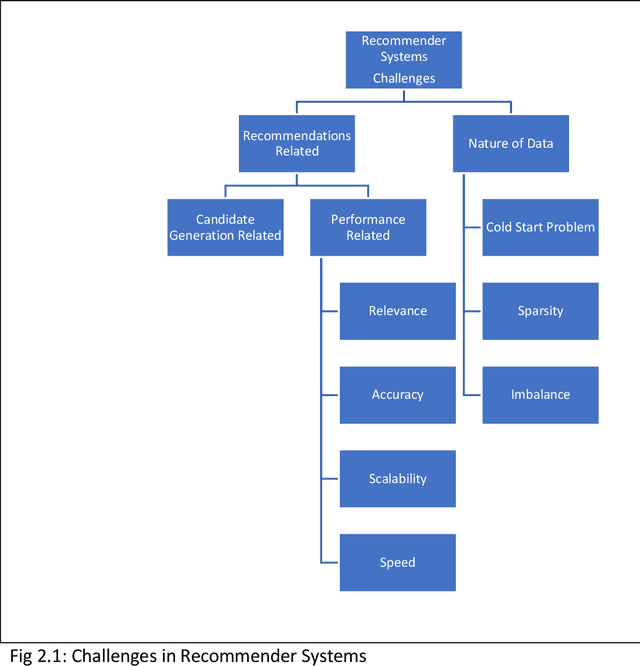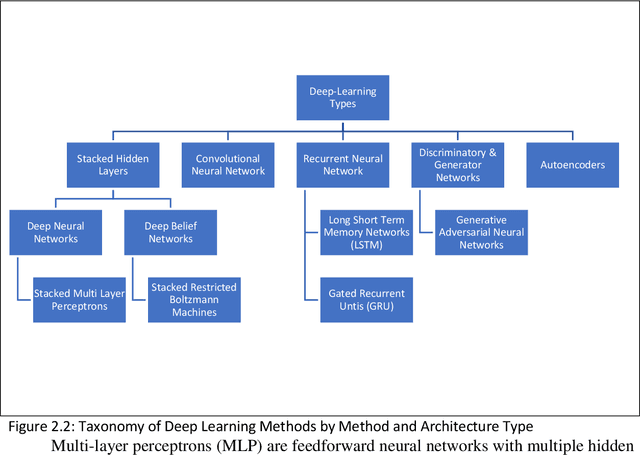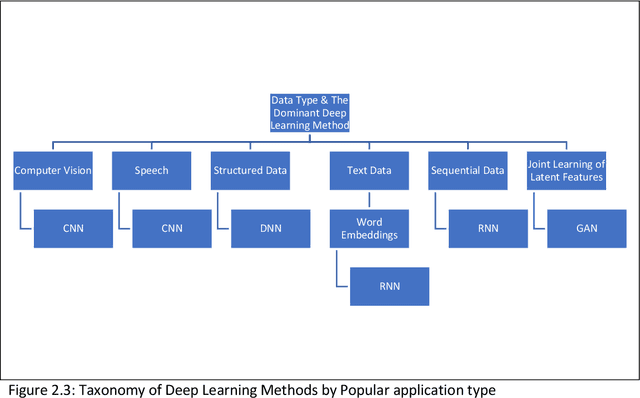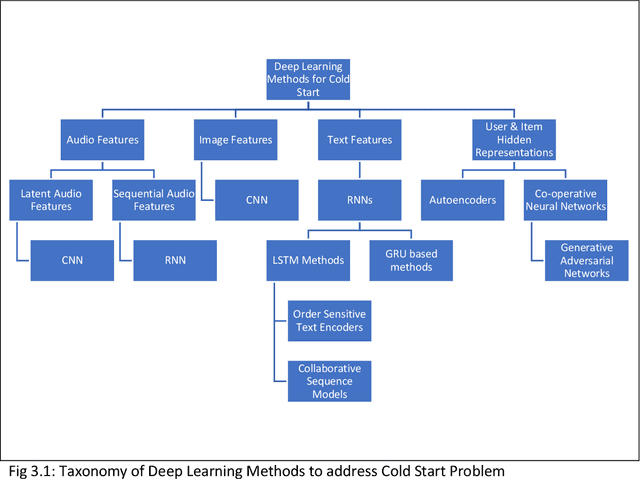Bharat Bhasker
Deep Learning to Address Candidate Generation and Cold Start Challenges in Recommender Systems: A Research Survey
Jul 17, 2019



Abstract:Among the machine learning applications to business, recommender systems would take one of the top places when it comes to success and adoption. They help the user in accelerating the process of search while helping businesses maximize sales. Post phenomenal success in computer vision and speech recognition, deep learning methods are beginning to get applied to recommender systems. Current survey papers on deep learning in recommender systems provide a historical overview and taxonomy of recommender systems based on type. Our paper addresses the gaps of providing a taxonomy of deep learning approaches to address recommender systems problems in the areas of cold start and candidate generation in recommender systems. We outline different challenges in recommender systems into those related to the recommendations themselves (include relevance, speed, accuracy and scalability), those related to the nature of the data (cold start problem, imbalance and sparsity) and candidate generation. We then provide a taxonomy of deep learning techniques to address these challenges. Deep learning techniques are mapped to the different challenges in recommender systems providing an overview of how deep learning techniques can be used to address them. We contribute a taxonomy of deep learning techniques to address the cold start and candidate generation problems in recommender systems. Cold Start is addressed through additional features (for audio, images, text) and by learning hidden user and item representations. Candidate generation has been addressed by separate networks, RNNs, autoencoders and hybrid methods. We also summarize the advantages and limitations of these techniques while outlining areas for future research.
 Add to Chrome
Add to Chrome Add to Firefox
Add to Firefox Add to Edge
Add to Edge